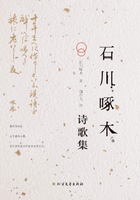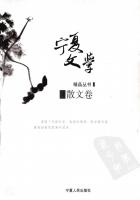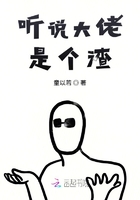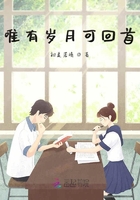It was some time, if I recollect right, in the early part of the fall of 1808, that a stranger applied for lodgings at the Independent Columbian Hotel in Mulberry Street, of which I am landlord. He was a small, brisk-looking old gentleman, dressed in a rusty black coat, a pair of olive velvet breeches, and a small cocked hat. He had a few gray hairs plaited and clubbed behind, and his beard seemed to be of some eight-and-forty hours' growth. The only piece of finery which he bore about him was a bright pair of square silver shoe-buckles; and all his baggage was contained in a pair of saddle-bags, which he carried under his arm. His whole appearance was something out of the common run; and my wife, who is a very shrewd little body, at once set him down for some eminent country schoolmaster.
As the Independent Columbian Hotel is a very small house, I was a little puzzled at first where to put him; but my wife, who seemed taken with his looks, would needs put him in her best chamber, which is genteelly set off with the profiles of the whole family, done in black, by those two great painters, Jarvis and Wood: and commands a very pleasant view of the new grounds on the Collect, together with the rear of the Poor House and Bridewell, and the full front of the Hospital; so that it is the cheerfulest room in the whole house.
During the whole time that he stayed with us, we found him a very worthy, good sort of an old gentleman, though a little queer in his ways. He would keep in his room for days together, and if any of the children cried, or made a noise about his door, he would bounce out in a great passion, with his hands full of papers, and say something about "deranging his ideas;" which made my wife believe sometimes that he was not altogether compos. Indeed, there was more than one reason to make her think so, for his room was always covered with scraps of paper and old mouldy books, lying about at sixes and sevens, which he would never let anybody touch; for he said he had laid them all away in their proper places, so that he might know where to find them; though, for that matter, he was half his time worrying about the house in search of some book or writing which he had carefully put out of the way. I shall never forget what a pother he once made, because my wife cleaned out his room when his back was turned, and put everything to rights; for he swore he would never be able to get his papers in order again in a twelve-month. Upon this my wife ventured to ask him, what he did with so many books and papers? and he told her, that he was "seeking for immortality"; which made her think, more than ever, that the poor old gentleman's head was a little cracked.
He was a very inquisitive body, and when not in his room was continually poking about town, hearing all the news, and prying into everything that was going on; this was particularly the case about election time, when he did nothing but bustle about him from poll to poll, attending all ward meetings and committee-rooms; though I could never find that he took part with either side of the question. On the contrary, he would come home and rail at both parties with great wrath-and plainly proved one day to the satisfaction of my wife, and three old ladies who were drinking tea with her, that the two parties were like two rogues, each tugging at the skirt of the nation; and that in the end they would tear the very coat off its back, and expose its nakedness. Indeed, he was an oracle among the neighbors, who would collect around him to hear him talk of an afternoon, as he smoked his pipe on the bench before the door; and I really believe he would have brought over the whole neighborhood to his own side of the question, if they could ever have found out what it was.
He was very much given to argue, or, as he called it, philosophize, about the most trifling matter, and to do him justice, I never knew anybody that was a match for him, except it was a grave-looking old gentleman who called now and then to see him, and often posed him in an argument. But this is nothing surprising, as I have since found out this stranger is the city librarian; and, of course, must be a man of great learning; and I have my doubts if he had not some hand in the following history.
As our lodger had been a long time with us, and we had never received any pay, my wife began to be somewhat uneasy, and curious to find out who and what he was. She accordingly made bold to put the question to his friend the librarian, who replied, in his dry way, that he was one of the Literati; which she supposed to mean some new party in politics. I scorn to push a lodger for his pay, so I let day after day pass on without dunning the old gentleman for a farthing; but my wife, who always takes these matters on herself, and is, as I said, a shrewd kind of a woman, at last got out of patience, and hinted, that she thought it high time "some people should have a sight of some people's money." To which the old gentleman replied in a mighty touchy manner, that she need not make herself uneasy, for that he had a treasure there (pointing to his saddle-bags) worth her whole house put together. This was the only answer we could ever get from him; and as my wife, by some of those odd ways in which women find out everything, learnt that he was of very great connections, being related to the Knickerbockers of Scaghtikoke, and cousin german to the Congressman of that name, she did not like to treat him uncivilly. What is more, she even offered, merely by way of making things easy, to let him live scot-free, if he would teach the children their letters; and to try her best and get her neighbors to send their children also; but the old gentleman took it in such dudgeon, and seemed so affronted at being taken for a schoolmaster, that she never dared to speak on the subject again.
About two months ago, he went out of a morning, with a bundle in his hand-and has never been heard of since. All kinds of inquiries were made after him, but in vain. I wrote to his relations at Scaghtikoke, but they sent for answer, that he had not been there since the year before last, when he had a great dispute with the Congressman about politics, and left the place in a huff, and they had neither heard nor seen anything of him from that time to this. I must own I felt very much worried about the poor old gentleman; for I thought something bad must have happened to him, that he should be missing so long, and never return to pay his bill. I therefore advertised him in the newspapers, and though my melancholy advertisement was published by several humane printers, yet I have never been able to learn anything satisfactory about him.
My wife now said it was high time to take care of ourselves, and see if he had left anything behind in his room, that would pay us for his board and lodging. We found nothing, however, but some old books and musty writings, and his pair of saddle-bags; which, being opened in the presence of the librarian, contained only a few articles of worn-out clothes and a large bundle of blotted paper. On looking over this, the librarian told us, he had no doubt it was the treasure which the old gentleman had spoke about; as it proved to be a most excellent and faithful History of New York, which he advised us by all means to publish; assuring us that it would be so eagerly bought up by a discerning public, that he had no doubt it would be enough to pay our arrears ten times over. Upon this we got a very learned schoolmaster, who teaches our children, to prepare it for the press, which he accordingly has done; and has, moreover, added to it a number of notes of his own; and an engraving of the city, as it was at the time Mr. Knickerbocker writes about.
This, therefore, is a true statement of my reasons for having this work printed, without waiting for the consent of the author; and I here declare, that if he ever returns (though I much fear some unhappy accident has befallen him), I stand ready to account with him like a true and honest man. Which is all at present--
From the public's humble servant,
SETH HANDASIDE.
INDEPENDENT COLUMBIAN HOTEL, NEW YORK.
The foregoing account of the author was prefixed to the first edition of this work. Shortly after its publication, a letter was received from him, by Mr. Handaside, dated at a small Dutch village on the banks of the Hudson, whither he had traveled for the purpose of inspecting certain ancient records. As this was one of those few and happy villages, into which newspapers never find their way, it is not a matter of surprise, that Mr. Knickerbocker should never have seen the numerous advertisements that were made concerning him; and that he should learn of the publication of his history by mere accident.
He expressed much concern at its premature appearance, as thereby he was prevented from making several important corrections and alterations: as well as from profiting by many curious hints which he had collected during his travels along the shores of the Tappan Sea, and his sojourn at Haverstraw and Esopus.
Finding that there was no longer any immediate necessity for his return to New York, he extended his journey up to the residence of his relations at Scaghtikoke. On his way thither he stopped for some days at Albany, for which city he is known to have entertained a great partiality. He found it, however, considerably altered, and was much concerned at the inroads and improvements which the Yankees were making, and the consequent decline of the good old Dutch manners. Indeed, he was informed that these intruders were making sad innovations in all parts of the State; where they had given great trouble and vexation to the regular Dutch settlers, by the introduction of turnpike-gates and country school-houses. It is said, also, that Mr. Knickerbocker shook his head sorrowfully at noticing the gradual decay of the great Vander Heyden palace; but was highly indignant at finding that the ancient Dutch church, which stood in the middle of the street, had been pulled down since his last visit.
The fame of Mr. Knickerbocker's History having reached even to Albany, he received much flattering attention from its worthy burghers; some of whom, however, pointed out two or three very great errors he had fallen into, particularly that of suspending a lump of sugar over the Albany tea-tables, which they assured him had been discontinued for some years past. Several families, moreover, were somewhat piqued that their ancestors had not been mentioned in his work, and showed great jealousy of their neighbors who had thus been distinguished; while the latter, it must be confessed, plumed themselves vastly thereupon; considering these recordings in the lights of letters patent of nobility, establishing their claims to ancestry, which, in this republican country, is a matter of no little solicitude and vain-glory.
It is also said, that he enjoyed high favor and countenance from the governor, who once asked him to dinner, and was seen two or three times to shake hands with him when they met in the street; which certainly was going great lengths, considering that they differed in politics. Indeed, certain of the governor's confidential friends, to whom he could venture to speak his mind freely on such matters, have assured us that he privately entertained a considerable good-will for our author-nay, he even once went so far as to declare, and that openly too, and at his own table, just after dinner, that "Knickerbocker was a very well-meaning sort of an old gentleman, and no fool." From all which may have been led to suppose, that, had our author been of different politics, and written for the newspapers instead of wasting his talents on histories, he might have risen to some post of honor and profit: peradventure to be a notary public, or even a justice in the ten-pound court.
Besides the honors and civilities already mentioned, he was much caressed by the literati of Albany; particularly by Mr. John Cook, who entertained him very hospitably at his circulating library and reading-room, where they used to drink Spa water, and talk about the ancients. He found Mr. Cook a man after his own heart-of great literary research, and a curious collector of books At parting, the latter, in testimony of friendship, made him a present of the two oldest works in his collection; which were, the earliest edition of the Heidelberg Catechism, and Adrian Vander Donck's famous account of the New Netherlands; by the last of which Mr. Knickerbocker profited greatly in this his second edition.
Having passed some time very agreeably at Albany, our author proceeded to Scaghtikoke; where, it is but justice to say, he was received with open arms, and treated with wonderful loving-kindness. He was much looked up to by the family, being the first historian of the name; and was considered almost as great a man as his cousin the Congressman-with whom, by-the-by, he became perfectly reconciled, and contracted a strong friendship.
In spite, however, of the kindness of his relations, and their great attention to his comforts, the old gentleman soon became restless and discontented. His history being published, he had no longer any business to occupy his thoughts, or any scheme to excite his hopes and anticipations. This, to a busy mind like his, was a truly deplorable situation; and had he not been a man of inflexible morals and regular habits, there would have been great danger of his taking to politics or drinking-both which pernicious vices we daily see men driven to by mere spleen and idleness.
It is true he sometimes employed himself in preparing a second edition of his history, wherein he endeavored to correct and improve many passages with which he was dissatisfied, and to rectify some mistakes that had crept into it; for he was particularly anxious that his work should be noted for its authenticity; which, indeed, is the very life and soul of history. But the glow of composition had departed-he had to leave many places untouched which he would fain have altered; and even where he did make alterations, he seemed always in doubt whether they were for the better or the worse.
After a residence of some time at Scaghtikoke, he began to feel a strong desire to return to New York, which he ever regarded with the warmest affection; not merely because it was his native city, but because he really considered it the very best city in the whole world. On his return he entered into the full enjoyment of the advantages of a literary reputation. He was continually importuned to write advertisements, petitions, handbills, and productions of similar import; and, although he never meddled with the public papers, yet had he the credit of writing innumerable essays, and smart things, that appeared on all subjects, and all sides of the question, in all which he was clearly detected "by his style."
He contracted, moreover, a considerable debt at the postoffice, in consequence of the numerous letter he received from authors and printers soliciting his subscription-and he was applied to by every charitable society for yearly donations, which he gave very cheerfully, considering these applications as so many compliments. He was once invited to a great corporation dinner; and was even twice summoned to attend as a juryman at the court of quarter sessions. Indeed, so renowned did he become, that he could no longer pry about, as formerly, in all holes and corners of the city, according to the bent of his humor, unnoticed and uninterrupted; but several times when he has been sauntering the streets, on his usual rambles of observation, equipped with his cane and cocked hat, the little boys at play have been known to cry, "There goes Diedrich!" at which the old gentleman seemed not a little pleased, looking upon these salutations in the light of the praise of posterity.
In a word, if we take into consideration all these various honors and distinctions, together with an exuberant eulogium, passed on his in the Portfolio (with which, we are told, the old gentleman was so much overpowered, that he was sick for two or three days) it must be confessed that few authors have ever lived to receive such illustrious rewards, or have so completely enjoyed in advance their own immortality.
After his return from Scaghtikoke, Mr. Knickerbocker took up his residence at a little rural retreat, which the Stuyvesants had granted him on the family domain, in gratitude for his honorable mention of their ancestor. It was pleasantly situated on the borders of one of the salt marshes beyond Corlear's Hook; subject, indeed, to be occasionally over-flowed, and much infested, in the summer-time, with mosquitoes; but otherwise very agreeable, producing abundant crops of salt grass and bulrushes.
Here, we are sorry to say, the good old gentleman fell dangerously ill of a fever, occasioned by the neighboring marshes. When he found his end approaching, he disposed of his worldly affairs, leaving the bulk of his fortune to the New York Historical Society; his Heidelberg Catechism and Vander Donck's work to the City Library; and his saddle-bags to Mr. Handaside. He forgave all his enemies-that is to say, all that bore any enmity towards him; for as to himself, he declared he died in good-will to all the world. And, after dictating several kind messages, to his relations at Scaghtikoke, as well as to certain of our most substantial Dutch citizens, he expired in the arms of his friend the librarian.
His remains were interred, according to his own request, in St. Mark's Churchyard, close by the bones of his favorite hero, Peter Stuyvesant; and it is rumored that the Historical Society have it in mind to erect a wooden monument to his memory in the Bowling Green.

